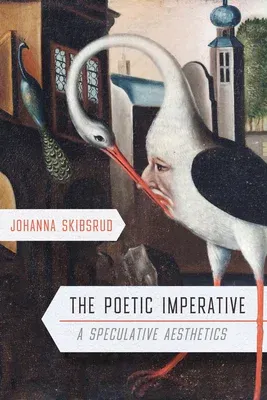This book aims to expand our sense of poetry's reach and potential
impact. It is an effort at recouping the poetic imperative buried within
the first taxonomic description of human being: nosce te ipsum, or know
yourself. Johanna Skibsrud explores both poetry and human being not as
fixed categories but as active processes of self-reflection and
considers the way that human being is constantly activated within and
through language and thinking. By examining a range of modern and
contemporary poets including Wallace Stevens, M. NourbeSe Philip, and
Anne Carson, all with an interest in playfully disrupting sense and
logic and eliciting unexpected connections, The Poetic Imperative
highlights the relationship between the practice of writing and reading
and a broad tradition of speculative thought. It also seeks to
demonstrate that the imperative know yourself functions not only as a
command to speak and listen, but also as a call to action and feeling.
The book argues that poetic modes of knowing - though central to poetry
understood as a genre - are also at the root of any conscious effort to
move beyond the subjective limits of language and selfhood in the hopes
of touching upon the unknown. Engaging and erudite, The Poetic
Imperative is an invitation to direct our attention simultaneously to
the finite and embodied limits of selfhood, as well as to what those
limits touch: the infinite, the Other, and truth itself.

